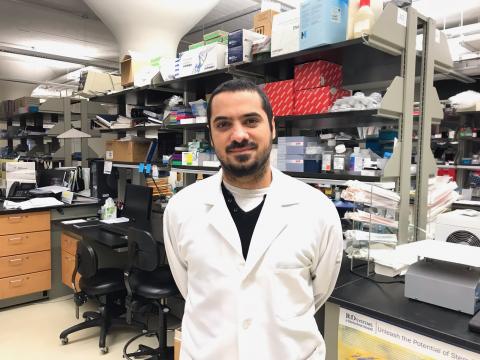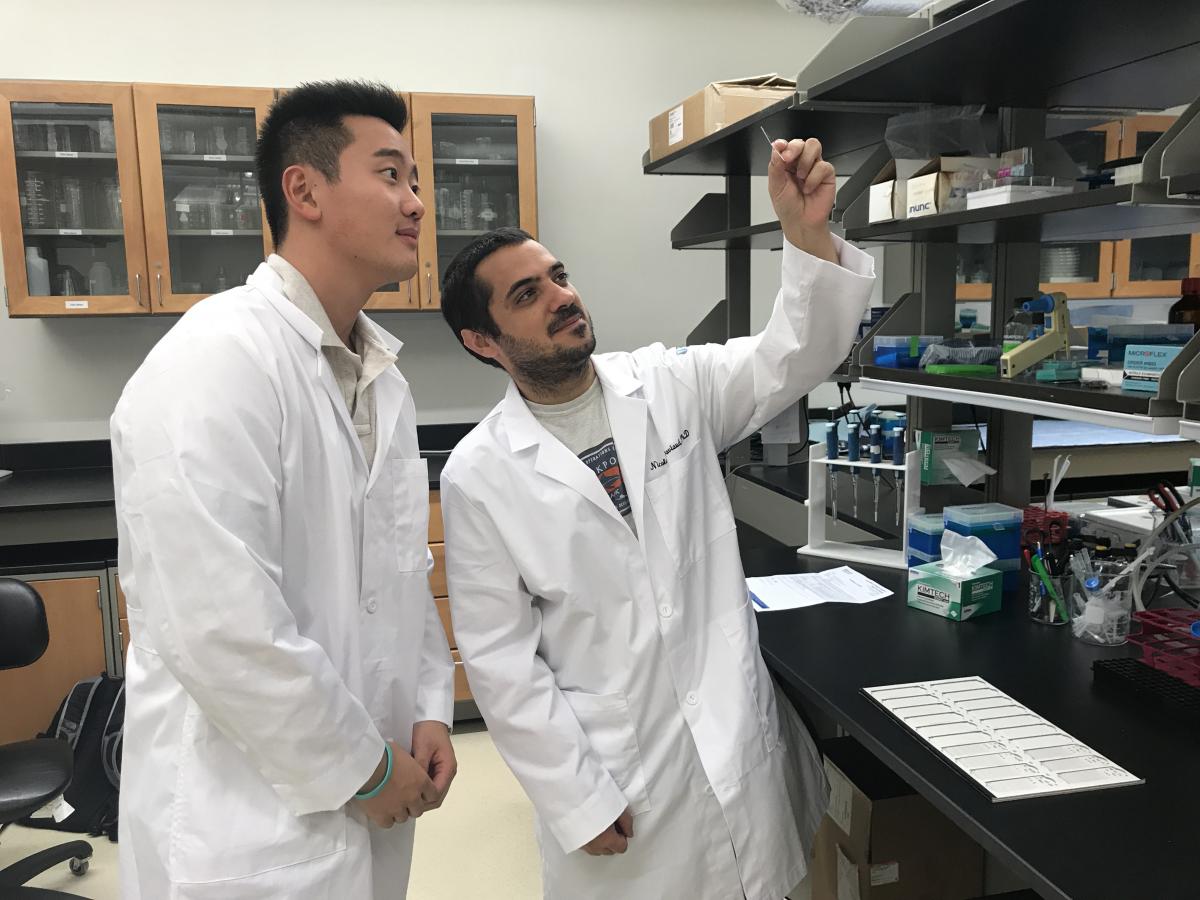
“As a researcher, the close proximity to the patients and clinicians, is highly motivating and brings a concrete objective in our studies of therapeutic approaches for multiple sclerosis.”
- Dr. Nicolas Daviaud, PhD
Dr. Daviaud joined the Tisch MS Research Center of New York in January 2019, after completing his postdoctoral training at the Icahn School of Medicine at Mount Sinai. As a postdoctoral fellow, he studied the use of cerebral organoids as a new human model of preterm hypoxic injury, as well as the engraftment of transplanted human cerebral organoids in mouse cortex for neural repair in cases of brain injury or neurodegeneration.
Dr. Daviaud received his PhD in Neuroscience and his Master's Degree in Science Technology and Health Engineering at the University of Angers, France. His thesis work focused on the development and characterization of pharmacologically active microcarriers conveying stem cells for the treatment of neurodegenerative disorders.
Dr. Daviaud's research at Tisch MSRCNY is directed towards using cerebral organoids as a model of multiple sclerosis and as a new platform to study therapeutic approaches and analyze mechanisms involved in repair/regeneration of brain cells.

SELECTED ABSTRACTS
2022
2021
-
Eric Chen, Nicolas Daviaud, Saud A Sadiq, MD. Effect of patient with multiple sclerosis genetic backgroud on cell population in cerebral organoid model. Presented at the American Academy of Neurology (AAN) Annual Meeting held April 17-22, 2021
-
Tara Edwards, Eric Chen, Nicolas Daviaud, Saud A Sadiq. Tisch Multiple Sclerosis Research Center of New York, New York, NY, USA. Cell Cycle Inhibitor p21 Expression Decrease In PPMS Cerebral Organoids Leads To Exhaustion Of The Progenitor Pool Independently Of Apoptosis Pathway
-
Nicolas Daviaud, Eric Chen, Saud A Sadiq. Tisch Multiple Sclerosis Research Center of New York, New York, NY, USA. Analysis of distinct cell population fate in Patient-Derived Cerebral Organoid Model of Multiple Sclerosis.
Tisch MS Research Center of New York
521 West 57th Street
4th Floor
New York, NY 10019
(646) 557-3900
Support Tisch MS
Support Tisch MS and our innovative research leading to treatments that improve the lives of patients.
